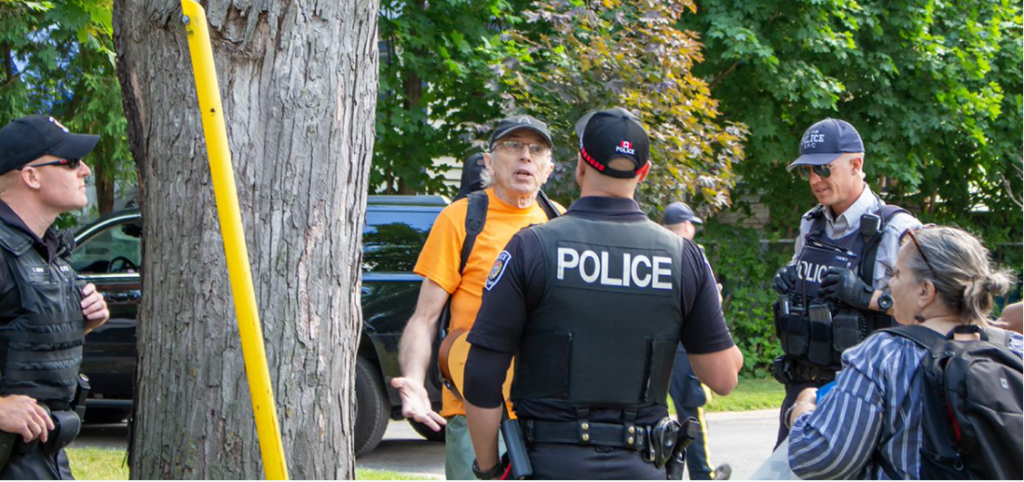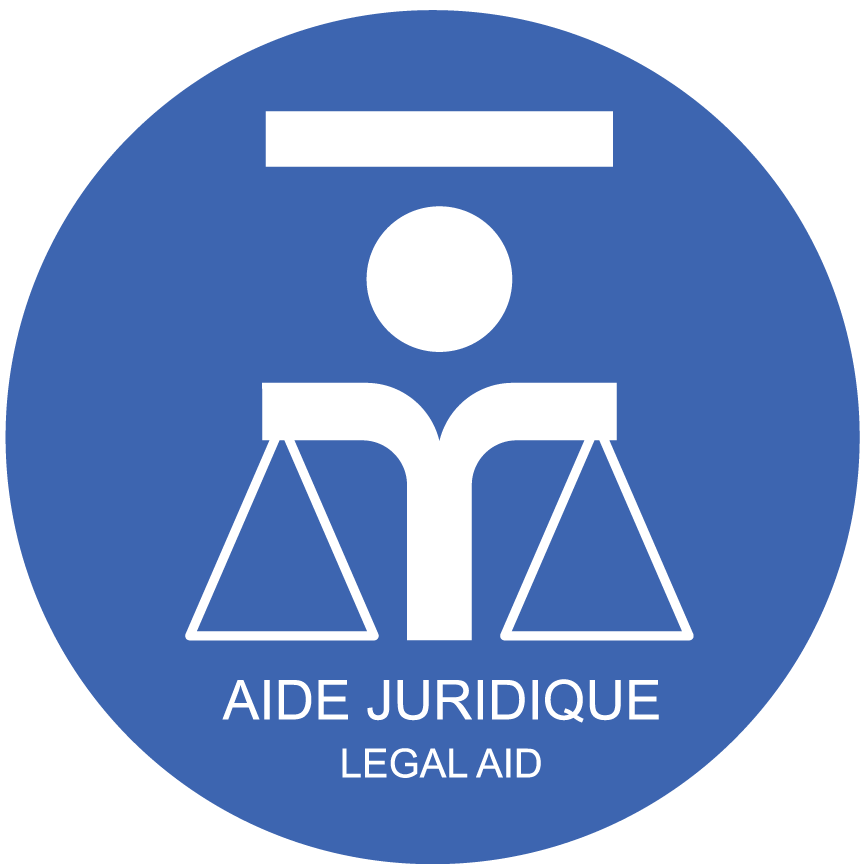If you are stopped, detained, or arrested by the police, you have rights! Police must follow certain rules, and they must apply them equally regardless of your appearance, ethnic origin, or immigration status. You have recourses, including filing a complaint if your rights were not respected.

|
Important! |
If you are stopped
It is possible to be stopped by the police without being detained or arrested. For example, the police may want to ask you some questions if you witnessed a crime or if they think you may have information about one.
In this situation, you do not have to answer their questions. You can refuse to say what you are doing, where you are going, why, and with whom.
However, you do have to provide your identity to the police if you are driving a vehicle or are suspected of having committed a crime. In these situations, the police must tell you why they want to know your identity. You must provide your name, address, and date of birth.
The police can arrest you and take you to the police station if you refuse to identify yourself or if you provide a false identity.
|
Did the police pull you over for a random traffic stop? It’s important to note that police officers can only stop your vehicle randomly to test the level of alcohol or drugs in your blood. They must also have an approved screening device with them. If that happens, you don’t have to identify yourself before taking the test. |
If you are detained or arrested
If the police stop you in the street or elsewhere and you are not free to go, you are being detained. You are also being detained if the police take you to a police station as part of an investigation. It is possible to be detained without being arrested.
The police can arrest you if they believe that you committed a crime. In this situation, they must tell you clearly that you are under arrest.
IF you are detained or arrested, you have the right to:
- Know why you were detained or arrested.
- Remain silent. You are not obliged to answer their questions or even speak with them, except to identify yourself.
- Speak with a lawyer for advice.
To learn more about your rights if you are arrested or detained, see our article Rights of People Detained or Arrested
|
Police cannot simply search you for no reason!
|
What the police cannot do while carrying out their duties
The police can’t abuse their powers while they are carrying out their duties. They cannot:
- Stop or detain you for a reason that is discriminatory and prohibited by the Quebec or Canadian charters of rights, for example your skin colour, your political opinion or your ethnic origin.
- Insult you, swear at you, or show a lack of respect or politeness.
- Threaten or intimidate you.
- Damage something that belongs to you.
- Abuse their authority by using force or threatening to do so when it is not necessary to carry out their duties.
- Refuse to provide their names and badge numbers when asked.
In this type of situation, you can:
- Ask for the names and badge numbers of the police who stopped you. This is not mandatory to file a complaint, but it can be helpful.
- Film or record what’s happening to use it as evidence later. Make sure to keep a sufficient distance so as to not interfere with their work, or you could be charged with obstruction of justice.
- Note all the information about the event: the date, hour, place, what the police said and did, your reactions, etc.
Filing a complaint and other recourses
Taking civil action
You can personally sue someone who caused you harm, including a police officer, for damages. This is known as civil responsibility.
For more information, see our article on civil liability.
Getting help after an arrest
You can call the emergency telephone number of the Barreau du Québec (Quebec bar association) if you’ve been arrested (1-866-666-0011).
Several organizations can help you obtain damages or to see that police officers are punished in situations of discrimination or where an officer did not behave properly or even committed a crime.
|
Important: If you are not a Canadian citizen, a criminal charge can have an impact on your immigration status. It is very important to obtain legal advice in this situation. This could affect your right to remain in Canada. In an emergency, you can call the Barreau du Québec’s immigration emergency number: 1-866 954-3525. |
You believe you have been the victim of discrimination
This could be the case, for example, if you are a member of an ethnocultural minority and are frequently stopped by the police without cause.
In this case, you can file a complaint with the Commission des droits de la personne et des droits de la jeunesse (human rights and youth rights commission).
If the commission finds sufficient evidence of a violation of your rights, it can propose a corrective plan for the person who committed the acts in question. This could be, for example, that they follow a session on sensitivity regarding discrimination or that they pay you a sum of money as compensation. If the person fails to comply, the commission could take your case to the Tribunal des droits de la personne (human rights tribunal) to claim compensation from the person. If the commission does this, they would represent you free of charge before the tribunal.
A police officer did not respect the rules of conduct when carrying out duties
This means that the officer behaved in a manner that undermines the public confidence necessary for police to carry out their duties. For example, the officer lacked respect or abused their authority.
In this situation, you can file a complaint or a report with the office of the Police Ethics Commissioner or at any police station. You must do this within a year of the event in question, or within a year of learning of the event.
If the officer is found to have acted improperly, they may be reprimanded, suspended, or even fired.
To learn more, see our article on Police Ethics.
A police officer caused you a serious injury or committed a crime of a sexual nature
In this situation, you can complain to the Bureau des enquêtes indépendantes (office of independent investigations. It will be this office that conducts the investigation. The members of the office can’t be active police officers.
At the end of the investigation, the office must send a report to the Director of Criminal and Penal Prosecutions who decides whether to charge the police officer with a crime. A police officer who pleads guilty to a crime or who is found guilty by a court can face a fine or a prison sentence.
To learn more, see our article on Police Ethics.
|
The Commission des services juridiques (legal aid) The Commission des services juridiques (legal aid) is responsible for applying Québec’s Act respecting legal aid and the provision of certain other legal services. The Commission ensures that legal aid is available to every eligible person who applies for it. You can contact the Commission des services juridiques to find out more about possible recourses and see if you are eligible for legal aid (1-800-842-2213). Find on the Commission’s website |






